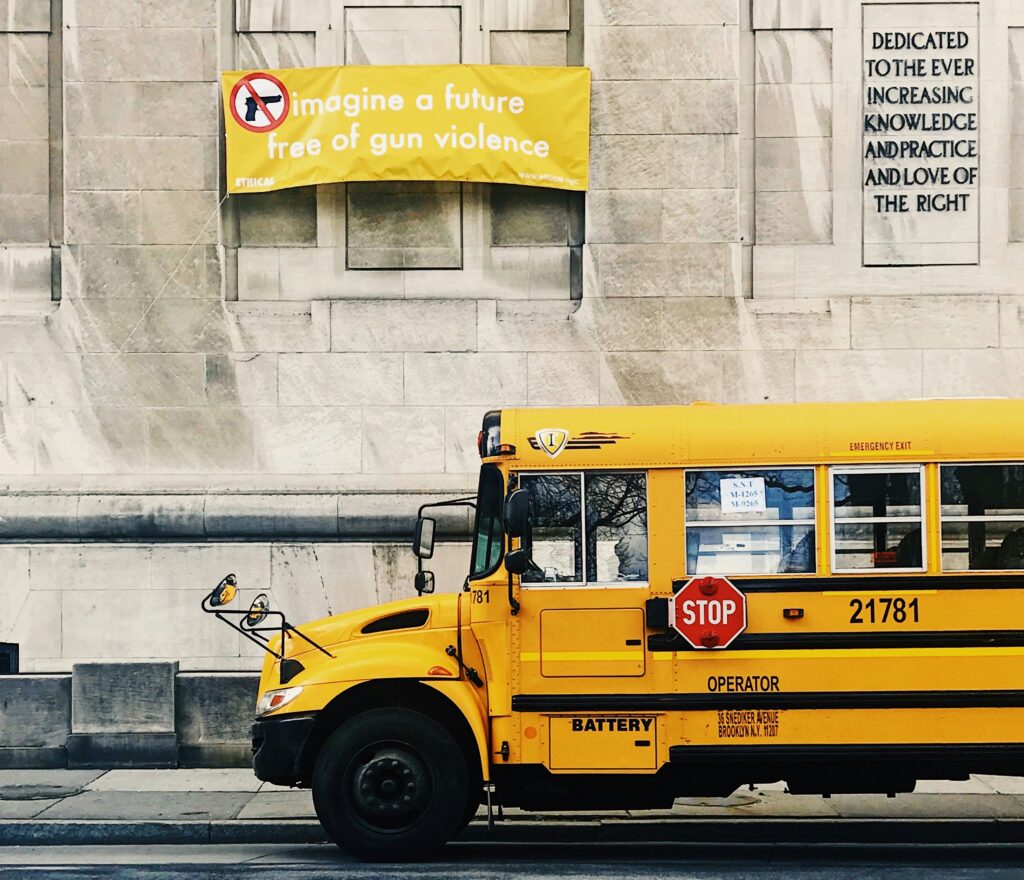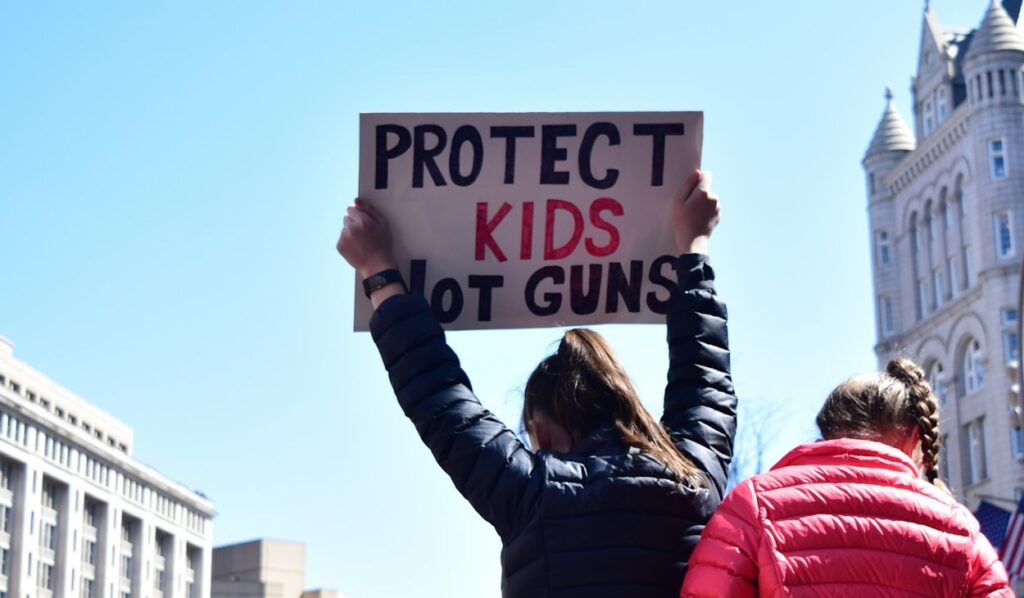New from the @EmoryCSHH News Team: Weight-loss drugs in the UK, why health insurance is tied to jobs, declines in drug overdoses, therapeutic food shortages in Africa, facing dementia and cognitive decline alone.
The Power of a Yard Sign: How a Group of Older Women Sparked a Social Movement
The activists behind “Regulate Guns Not Women” embody the power of a simple, clear idea
By Caroline Hansen
Standing around the roundabout outside of Emory University are six people wearing green. Cars are honking in support as they pass. Some give the people a thumbs up, others stop to get a sign for themselves.
At all points in the roundabout are green signs in bold font stating, “Regulate Guns not Women”.
After the Dobbs v. Jackson Supreme Court decision, the Atlanta Grandmothers of Peace wanted to do something. Their movement started with 100 bright green yard signs saying “Regulate Guns not Women”. Now, they have 7,000 yard signs — and even more shirts, stickers, and pins — and their message is expanding outside of Georgia and even outside the United States.
The group participates in pop-up rallies and protests at Georgia’s Governor’s mansion, and has an active Facebook group. On their website is their mission: “Our goal is to keep this message in front of elected officials across the United States until women’s rights are restored and guns are no longer the number one killer of our children and grandchildren.”

Photo by Jose Alonso on Unsplash
Regulate Guns not Women (RGNW) is a prime example of a grassroots movement. Grassroots mobilize individuals to take action. In this case, to spread the message “Regulate Guns not Women.” They are a get out the vote street campaign. A “get out the vote” (GOTV) aims to promote voter turnout.
Their group highlights the power of a message. To get their movement off the ground, all they needed were a few passionate people and a slogan.
Janice Hall, their communications lead, calls them a “handful of seasoned elderly women.” She runs the Facebook group, sends out their weekly newsletter, and helps get the word out.
“The only thing that you have to do is get it in front of people,” she says. “So that’s why we are a street campaign. To speak about that, we just show up at various places.”
Their movement is creating social accountability to promote civil engagement with the hope of invoking legislative change. Hall continues, highlighting goals to get people to the polls: “We figured that if we put it in front of enough people, that even if we had three or four people committed, still every vote is going to count.”
Allison Jordan, an associate researcher in gun violence prevention at the Center for American Progress, explains the importance of grassroots organizations for gun prevention. “With what we do and how grassroots organizations impact this work, it’s really important messaging,” she says. “General culture changing is a big part of gun violence prevention, because there’s such a deeply ingrained gun culture in this country.”
Regulate Guns Not Women helps spread the message of gun violence prevention, through their overall message, and their weekly protests at the Georgia state capitol. As a Get out the Vote campaign the hope to increase voter mobilization. One study shows that nonprofit voter mobilization is statistically significant in increasing voter turnouts.
In the 2022 midterm election, Georgia voters led the Southeast region in voter turnout and participation. Georgia was the first state to implement the “golden trifecta” of voter registration. This includes automatic voter registration, 17 days of early voting, and no-excuse absentee voting.
In the United States, and in Georgia specifically, mobilizing for the 2024 election is more important than ever. The 2022 overturn of Roe v. Wade, the Supreme Court decision that federally protected abortion, kickstarted their campaign. Georgia, where this group originates, currently has an abortion ban after six weeks, also known as a “heartbeat law”.
This legislation can have detrimental effects on women in Georgia. One study emphasizes that only 12 percent of abortions from 2007 to 2017 would meet the heartbeat law’s requirements. Abortion bans are not just in Georgia, but throughout the Ssouth and Ssoutheast. This limits the option to simply drive to another state to receive an abortion.

RGWN has appeared in the news before fighting for this cause. In May 2023, supporters of the cause went to the Georgia’s State capitol to rally against the limitation of abortion pills.
These laws impact more than just access to abortions. Women living in states with more restrictive gun laws had higher rates of mental health distress.
Moreover, in Georgia 1,868 are killed each year due to gun violence. This gives Georgia the 10th highest rate of gun violence in the United States. Gun violence is a public health issue. Gun violence not only results in death and injury, but psychological and emotional trauma.
Georgia’s gun laws directly oppose gun regulation. Georgia is a “permitless carry” state. Any “lawful weapons carrier” is permitted to conceal and carry in most public spaces without a permit or background check. Georgia also does not limit ammunition or magazine capacity.
On March 27, Regulate Guns not Women had a table at the BlackPush Incorporated press conference and community gathering to address the gun legislation then under consideration in the Georgia General Assembly. Acts like these not only spread their message, but showcase the unity of people from all walks of life who are interested in protecting the community.
Now, more than ever, rallying for gun control in Georgia is important. The Georgia Legislature recently passed the Georgia Firearms Industry Nondiscrimination Act, House Bill 1018, which prohibits using firearm and ammunition- specific category codes by payment processors. This provides additional protections to those who own, purchase, or engage in the business of selling firearms, and retailers who sell firearms are no longer distinguished from those who do not.
Allison Jordan describes how organizations like RGNW impact not only elections but the community, “Messaging and culture change is a huge benefit of grassroots organizations. Showing that there is that there is a group of people or movement that can say, for our children. We want a better society. We want safer communities. It is really important.”
Regulate Guns, not Women, is still going strong. Holding their weekly pop-up rallies, rallies at the Georgia State Capitol, and giving out yard signs, stickers, and buttons, they are bringing the community together with their message.
Janice Hall, has strong hopes for their organization. “It is amazing and I have never seen grassroots work like this before”, she says. And that keeps these women going.


